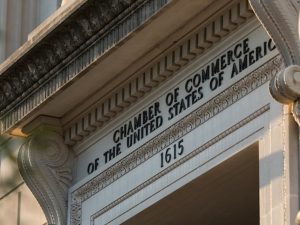In a significant legal development, the U.S. Chamber of Commerce has followed through on its promise to challenge the Federal Trade Commission (FTC) over its ban on agreements that restrict workers from joining rival companies. Filed in a U.S. District Court in Texas, the lawsuit asserts that the FTC overstepped its authority by issuing rules that define unlawful methods of competition.
Joined by three other business groups—the Business Roundtable, the Texas Association of Business, and the Longview Chamber of Commerce—the U.S. Chamber of Commerce argues that the FTC lacks the jurisdiction to impose a categorical ban on noncompete agreements. The lawsuit comes hot on the heels of the FTC's announcement of a final rule to prohibit such agreements, approved in a 3-to-2 vote, with both Republican commissioners dissenting.
The Chamber of Commerce contends that the ban represents a significant overhaul of the national economy, affecting a wide range of contracts without necessarily harming competition. Moreover, the lawsuit questions the legality of the FTC's authority to issue such a sweeping prohibition.
The legal challenge is not isolated. Ryan LLC, a tax services firm based in Dallas, has also filed a lawsuit against the FTC, echoing similar arguments regarding the agency's jurisdiction and the lawfulness of the ban on noncompete agreements. Represented by Eugene Scalia, a former secretary of labor during the Trump administration, Ryan LLC's lawsuit further amplifies the chorus of dissent against the FTC's rule.
In response, an FTC spokesperson reiterated the agency's stance, emphasizing its mandate to prevent unfair methods of competition, which it believes includes noncompete agreements that curtail economic freedom. However, the choice of Texas as the forum for the lawsuits is notable, as it places the legal challenges in front of District Court judges appointed by the Trump administration, potentially setting the stage for a conservative-leaning interpretation of the issues at hand.
Legal experts anticipate a protracted legal battle, with the outcome likely to have far-reaching implications for the regulation of noncompete agreements and the scope of the FTC's authority. The dispute underscores broader debates surrounding administrative agency powers and the balance between regulatory oversight and economic freedom.
As the lawsuits unfold, the fate of the FTC's rule on noncompete agreements hangs in the balance, with potential ramifications for businesses, workers, and the regulatory landscape as a whole.






















